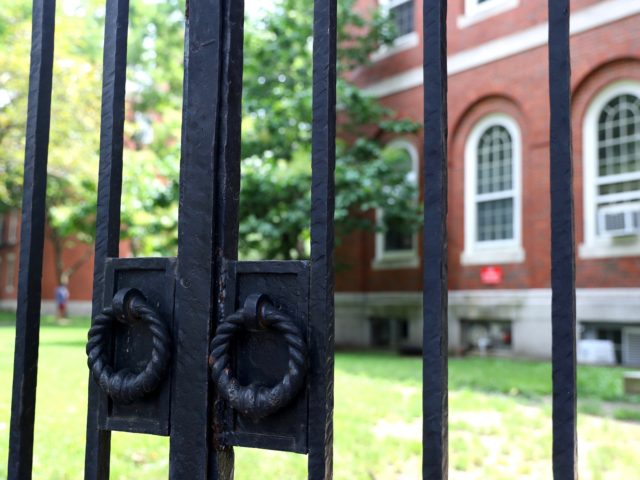Left-wing bias has created a “chilling effect” in British academia which is forcing conservative and pro-Brexit academics to self-censor on campus, a report has found.
A report from the Policy Exchange think tank found that many conservatives in higher education feel there is a “hostile climate” for their political beliefs in their departments. A survey of educators found that 44 per cent of ‘fairly right’ and 63 per cent of ‘very right’ academics felt that the political climate has impacted what they teach or research.
This is compared to just 8 per cent of those who consider themselves ‘fairly left’ and 16 per cent for those claiming to be ‘very left’.
In partnership with YouGov, the report sampled 820 academics, of whom 484 are currently working in the university system and 336 are retired educators.
The report also found that the chilling effect extended to students, with just 39 per cent of pro-Brexit students feeling comfortable to share their political opinions on campus, compared to 89 per cent of Remain-supporting students.
Trevor Phillips, the former chairman of the Equality and Human Rights Commission, told The Times that he found the report’s findings “deeply disturbing”.
“No one fought for diversity and inclusion in order to create universities staffed by a faculty who may look representative, but are to all intents and purposes, intellectually identical robots,” Philips said.
The government’s universities minister, Michelle Donelan, added: “It is deeply concerning the extent to which students and academics with mainstream views are being silenced and discriminated against in our universities.”
“This report has emphasised the need for action. University leaders must do much more to champion freedom of speech, and this government is committed to bringing forward measures to strengthen free speech and academic freedom, potentially including legislation,” she said.
The report from the Policy Exchange pointed to the decision by Cambridge University to rescind its offer of a fellowship position at the institution’s divinity school to Dr Jordan Peterson in 2019, as an example of the oppressive political climate on British campuses.
The Cambridge University Student Union hailed the move at the time, writing that “it is a political act to associate the University with an academic’s work through offers which legitimise figures such as Peterson. His work and views are not representative of the student body and as such we do not see his visit as a valuable contribution to the University, but one that works in opposition to the principles of the University.”
In November of last year, Cambridge also refused to host a pro-Brexit lecture from Radomir Tylecote, a Research Fellow at the Institute of Economic Affairs (IEA), arguing that his opinions were not “mainstream” — despite the fact a majority of voters backed Brexit in the EU referendum.
In February, the British government suggested that free speech would be “protected” at universities, but the report called for the government to go further and create a Director for Academic Freedom with ombudsman powers to protect freedom of speech on campus.
The report also called for an academic freedom bill that would ensure universities base regulations “on legal precedent, with reference to the liberal traditions and democratic norms of British society.”
The general secretary of the University and College Union, Jo Grady denied that there is a hostile climate in universities for right-wing academics, saying: “The idea that academic freedom is under threat is a myth. The main concern our members express is not with think tank-inspired bogeyman, but with the current government’s wish to police what can and cannot be taught.”
Follow Kurt on Twitter at @KurtZindulka

COMMENTS
Please let us know if you're having issues with commenting.